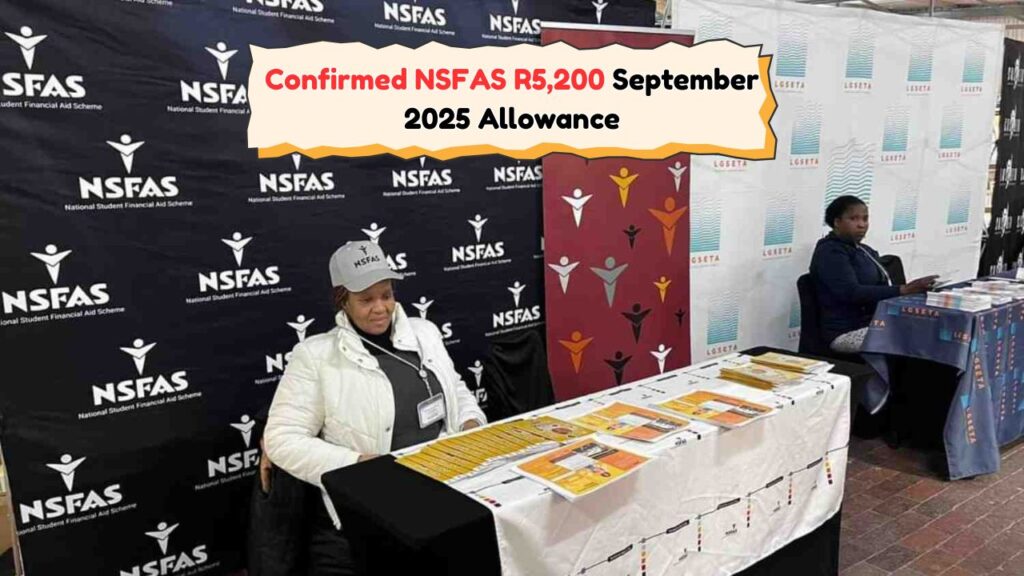NSFAS Allowance September 2023: The National Student Financial Aid Scheme (NSFAS) continues to play a pivotal role in supporting South African students pursuing higher education. As September rolls in, students are reminded to claim their R5,200 allowance, ensuring they can focus on their studies without the added stress of financial constraints. This initiative is a lifeline for many, bridging the gap between financial need and academic success. By providing this essential financial support, NSFAS helps alleviate some of the burdens associated with tuition fees, accommodation, and other educational expenses, thus enabling students to concentrate on their academic endeavors.

Understanding the R5,200 NSFAS Allowance for September
The R5,200 allowance from NSFAS is designed to cover essential student needs, including accommodation, transport, meals, and personal care. Understanding how this allowance can be utilized effectively is crucial for students relying on it. With the rising cost of living and educational expenses, this financial aid can significantly impact a student’s ability to thrive academically. The allowance is part of NSFAS’s broader effort to ensure that students from disadvantaged backgrounds have equal opportunities to succeed in higher education. Students should be aware of the eligibility criteria and the process for claiming their allowance, which typically involves ensuring their registration is up to date and that they meet the academic performance requirements. This financial support is more than just an allowance; it’s a tool to level the playing field, providing the necessary resources for academic success.
How to Claim Your September NSFAS Allowance
Claiming the NSFAS allowance is a straightforward process, but it requires students to stay informed and proactive. To receive the R5,200 for September, students must ensure their details with NSFAS are current and accurate. This includes updating contact information and banking details to avoid any delays. The allowance is typically disbursed directly into the student’s bank account, so having an active account is essential. Students should regularly check their NSFAS portal for any updates or notifications regarding their allowance. It’s also important to stay in contact with their institution’s financial aid office, which can provide additional guidance and support. By ensuring these steps are followed, students can avoid common pitfalls and receive their allowance promptly.
Maximizing Your NSFAS Allowance for September
Once the NSFAS allowance is received, students face the challenge of managing it effectively throughout the month. Budgeting is key; students should create a detailed plan for how they will allocate their funds to cover essential expenses such as rent, food, and study materials. Prioritizing needs over wants will help stretch the allowance further. It’s also wise for students to set aside a portion of their allowance for unexpected expenses, as this can prevent financial shortfalls later in the month. Utilizing student discounts and seeking out cost-effective alternatives for textbooks and other study materials can also help manage expenses. By practicing good financial habits, students can make the most out of their NSFAS allowance, ensuring they remain focused on their studies rather than financial stress.
Future of NSFAS and Student Funding in South Africa
The role of NSFAS in supporting South African students is continually evolving. As the educational landscape changes, so too do the challenges and opportunities associated with student funding. The future of NSFAS and its funding mechanisms will likely involve further integration of technology to streamline the application and disbursement processes. Additionally, ongoing dialogue between students, educational institutions, and policymakers is essential to address the dynamic needs of the student population. As the government and NSFAS explore ways to enhance financial aid programs, students can expect improvements in the accessibility and efficiency of these services. By staying engaged and informed, students can contribute to shaping a more equitable and effective funding system that serves the diverse needs of South Africa’s future scholars.




